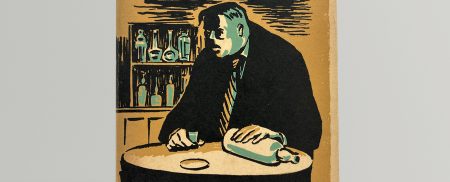Blade Runner and ‘Do Androids Dream of Electric Sheep’ – Philip K. Dick
Philip K. Dick’s novel “Do Androids Dream of Electric Sheep?” is a thought-provoking and complex work of science fiction that delves into questions of humanity, morality, and reality.
The novel is set in a post-apocalyptic future where most of Earth’s population has been decimated by a devastating global war. The remaining survivors live in a bleak, polluted world where owning a living animal is a sign of wealth and social status. The protagonist, Rick Deckard, is a bounty hunter tasked with “retiring” rogue androids who have escaped from off-world colonies and come to Earth illegally. These androids are virtually indistinguishable from humans and are designed to perform a variety of tasks, including manual labour and combat.
As Deckard sets out on his mission, he becomes increasingly obsessed with the idea of distinguishing between human and android. He questions the morality of killing sentient beings, even if they are not technically human, and begins to sympathise with the androids’ desire for freedom and autonomy. The lines between reality and illusion blur as he struggles to determine what is real and what is not.
Throughout the novel, Dick explores themes of identity, empathy, and the nature of consciousness. He challenges readers to consider what it truly means to be human and whether our definitions of humanity are limited by our own perceptions and biases. He also raises questions about the consequences of playing god and creating artificial life, and whether we are prepared to handle the moral and ethical dilemmas that come with it.
The title of the novel, “Do Androids Dream of Electric Sheep?” is a reference to the idea that androids may have the capacity to dream and to experience emotions, just like humans. This idea is central to the novel, as Deckard’s mission forces him to confront the idea that androids may be more than mere machines, and that they may be capable of experiencing emotions and even developing their own sense of identity.
“Do Androids Dream of Electric Sheep?” challenges readers to consider the nature of humanity and the consequences of our actions. It is a must-read for anyone interested in exploring the philosophical and ethical implications of artificial intelligence and the role it may play in our future.
“Blade Runner” was a 1982 Ridley Scott-directed film loosely based on “Do Androids Dream of Electric Sheep?” and shares many themes and characters with the novel. The film is set in a dystopian future Los Angeles, where genetically engineered humanoids called replicants have escaped and are being hunted down by special police officers called blade runners. The protagonist of the film, played by Harrison Ford, is a blade runner named Rick Deckard who is tasked with hunting down a group of replicants.
Both the novel and the film explore themes such as what it means to be human, the nature of consciousness, and the ethics of creating and controlling intelligent beings. However, the plot and characters differ significantly between the two, with the film focusing more on action and visual spectacle, and the novel delving deeper into the psychological and emotional aspects of the story.
We currently hold a copy of the first UK edition published in 1968 by Rapp and Whiting in stock click here to view









